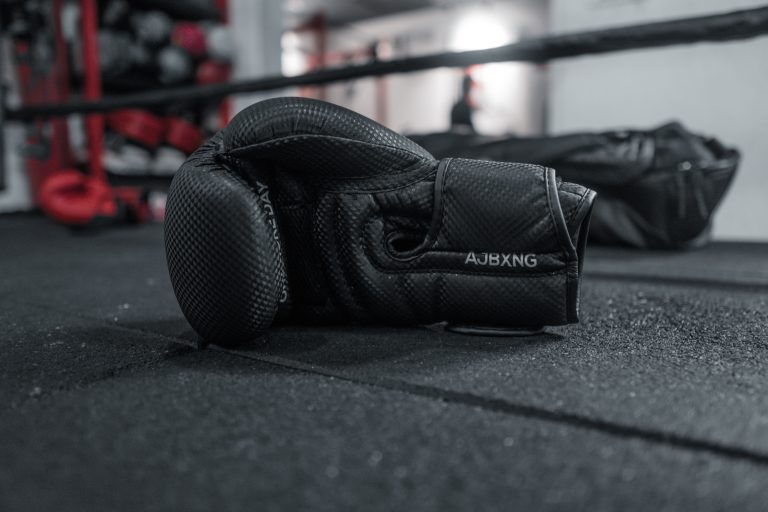Is TKD Better Than Karate? A Comprehensive Comparison
Martial arts have become increasingly popular worldwide because of the rise in self-defense awareness, combat sports, and their meditative aspects. Karate and Tae Kwon Do (TKD) are two of the most well-known martial arts in the world, and they have significant differences. However, whether one is better than the other is subjective, and understanding the differences between the two will help you make an informed decision that suits you.
What is Karate?
Karate originated in Japan and is a striking martial art that uses punching, kicking, knee strikes, elbow strikes, and open-hand techniques. It emphasizes power, speed, and efficiency, which makes it great for self-defense. Karate teaches practical fighting techniques that you can use in real-life situations, and it’s more popular for its hand strikes, while kicks are seen as supplementary. Moreover, it has set forms, katas, that teach the student the movements and their applications in sequence as well as sparring in full contact or with protective gear.
What is Tae Kwon Do (TKD)?
TKD is a Korean martial art that has evolved from several sources, both domestic and foreign. It emphasizes kicking techniques and rapid leg movements, which makes it excellent for exercise and developing flexibility. TKD has a broad range of strikes including punches, kicks, knee strikes, and elbow strikes, which are favored depending on the practitioner’s objectives. The ultimate goal in TKD is to improve oneself and to strive for perfection in mind and body, rather than just winning any competition. It also includes set patterns, poomsae, as well as sparring in different formats.
Differences in Techniques
The biggest difference between the two martial arts lies in their techniques.
1. Kicks vs. Strikes
TKD is renowned for its kicking techniques, while Karate focuses more on striking with the hand. Of course, both martial arts incorporate all techniques, but their primary focus is different. In karate, kicks are supplementary techniques used to distract an opponent or catch him off-guard, while punches and strikes are used for offense and defense. On the other hand, TKD practitioners typically prefer to kick from a safe distance to avoid being countered.
2. Forms and Sparring
Both arts have set forms, but they teach different techniques. Karate’s katas teach practical fighting techniques and typical situations, while TKD’s poomsae emphasizes balance, positioning, stability, and breathing. Sparring in karate is usually full contact or with some level of protection, where the objective is to gain points by striking vital areas. The objective in TKD sparring is to touch the opponent with the foot or the fist without hitting hard, and protective gear is mandatory.
3. Targeting Techniques
The two martial arts have different targets. Karate strikes target the lower abdomen or chest, while TKD focuses on the head and face, which means you are less likely to sustain injuries in Karate. However, TKD practitioners wear protective gear to minimize injuries.
Benefits of Karate
Karate focuses on practical fighting techniques that are useful in real-life situations, making it ideal for self-defense. In addition, Karate is characterized by short and precise movements, making it great for people who lack the physical strength required for other martial arts.
Benefits of Tae Kwon Do (TKD)
TKD is great for developing cardiovascular endurance and flexibility because of its repeated rapid leg movements. TKD practitioners also develop their mental and physical strength because of the focus on balance, positioning, and stability. Although TKD focuses on kicking, it includes various techniques that improve all aspects of one’s physical and mental health.
Is TaeKwonDo better than Karate?
Introduction
When it comes to choosing a martial art, there are many options available. Two of the most popular martial arts are TaeKwonDo and Karate. However, many people are often confused about which martial art is better. In this blog post, we will answer some of the most frequently asked questions about TaeKwonDo and Karate to help you make an informed decision.
Question 1: What is the difference between TaeKwonDo and Karate?
While both TaeKwonDo and Karate are martial arts, they originated in different countries and have different techniques. TaeKwonDo is a Korean martial art that focuses on high, fast kicks and spinning kicks. Karate is a Japanese martial art that emphasizes hand strikes and low kicks. TaeKwonDo also places a greater emphasis on sparring, while Karate places a greater emphasis on kata or pre-arranged forms.
Question 2: Which martial art is more effective for self-defense?
Ultimately, the effectiveness of a martial art for self-defense will depend on the individual practitioner’s skill and training. However, some people argue that TaeKwonDo may be more effective for self-defense due to its emphasis on quick and powerful kicks, which can be useful for keeping attackers at a distance. On the other hand, Karate’s emphasis on hand strikes may be more effective for close-range combat.
Question 3: Which martial art is better for fitness?
Both TaeKwonDo and Karate can provide a great workout and improve overall fitness. TaeKwonDo’s emphasis on high, fast kicks can improve flexibility and increase speed and stamina. Karate’s emphasis on power and strength can improve cardiovascular health and build muscle. Ultimately, the best martial art for fitness will depend on the individual’s goals and preferences.
Question 4: Which martial art is better for competitions?
Both TaeKwonDo and Karate have their own international governing bodies and competitions. However, TaeKwonDo is an Olympic sport, which may make it more attractive to some competitors. TaeKwonDo competitions award points for kicks to the head and body, while Karate competitions award points for strikes to the body and face. Ultimately, the best martial art for competitions will depend on the individual’s goals and preferences.
Question 5: Which martial art has a better community?
Both TaeKwonDo and Karate have large and supportive communities of practitioners around the world. However, some people argue that TaeKwonDo has a more competitive and formal atmosphere due to its emphasis on sparring and competitions. On the other hand, Karate has a more traditional and family-like atmosphere due to its emphasis on discipline and respect for one’s teacher and fellow students.
How to Choose Between Tae Kwon Do and Karate?
Are you trying to decide whether Taekwondo (TKD) or Karate is the right martial art for you? There are a few things to consider when making your decision. In this blog post, we will give you a step-by-step guide on how to choose between TKD and Karate.
Step 1: Understand the History and Philosophy
Before making a final decision, it’s essential to understand the history and philosophy behind each martial art.
Karate originated in Okinawa, Japan and emphasizes powerful strikes and blocks. Karate practitioners focus on achieving physical strength and stamina through rigorous training. The philosophy behind Karate focuses on self-discipline, respect, and mental focus.
On the other hand, Taekwondo originated in Korea and is a combination of various martial arts styles. Taekwondo practitioners focus on developing speed, agility, and flexibility through high kicks and jumping techniques. The philosophy behind Taekwondo emphasizes self-defense, self-discipline, and respect.
Understanding the history and philosophy will give you a better idea of what each martial art has to offer and which aligns more with your beliefs and goals.
Step 2: Determine Your Fitness Goals
Fitness is an essential aspect of martial arts. However, each martial art style emphasizes different aspects of fitness.
Karate emphasizes strength training and building physical power. It also emphasizes the development of cardiovascular endurance and stamina.
On the other hand, TKD places a greater emphasis on developing agility, speed, and flexibility. It is an excellent martial art for improving balance and coordination.
So, determining your fitness goals can help you decide which martial art will be best suited for you.
Step 3: Assess Your Learning Style
Everyone has a unique learning style, and some people may find it easier to learn one martial art over another. Karate is known to be more regimented, and it follows a strict set of rules and techniques. TKD, on the other hand, has a more fluid approach and encourages creativity and flexibility.
If you prefer a more structured environment, and thrive on discipline and a defined curriculum, then Karate might be a better fit for you. However, if you prefer a more free-thinking approach to learning, and enjoy experimenting with techniques, then Taekwondo may be more your style.
Step 4: Consider Your Age and Physical Ability
The age and physical ability of an individual should play an essential role in choosing a martial art. Karate places a greater emphasis on physical strength, which may be challenging for older individuals or those who have physical limitations.
TKD, on the other hand, is a good option for people of all ages and abilities. Its techniques are designed to be applied with minimal physical force, meaning that even elderly practitioners can utilize it. Additionally, TKD teaching includes self-defense principles, which are beneficial for people of all ages in our society.
Step 5: Try Them Both Out
The best way to decide between TKD and Karate is to try them both out. Attend a few classes for each and make a judgment based on your experience. Pay attention to aspects that resonate with you, like the instructor’s teaching style, how well you connect with classmates or the philosophy behind the style.
Conclusion
Choosing between Tae Kwon Do and Karate is a big decision, but by considering the steps outlined above, it can become more manageable. Understanding the history and philosophy behind each martial art, determining your fitness goals, assessing your learning style, considering your age and physical abilities, and trying them both out will help you make the best decision for you. So, good luck on your martial arts journey!
Inhaltsverzeichnis






